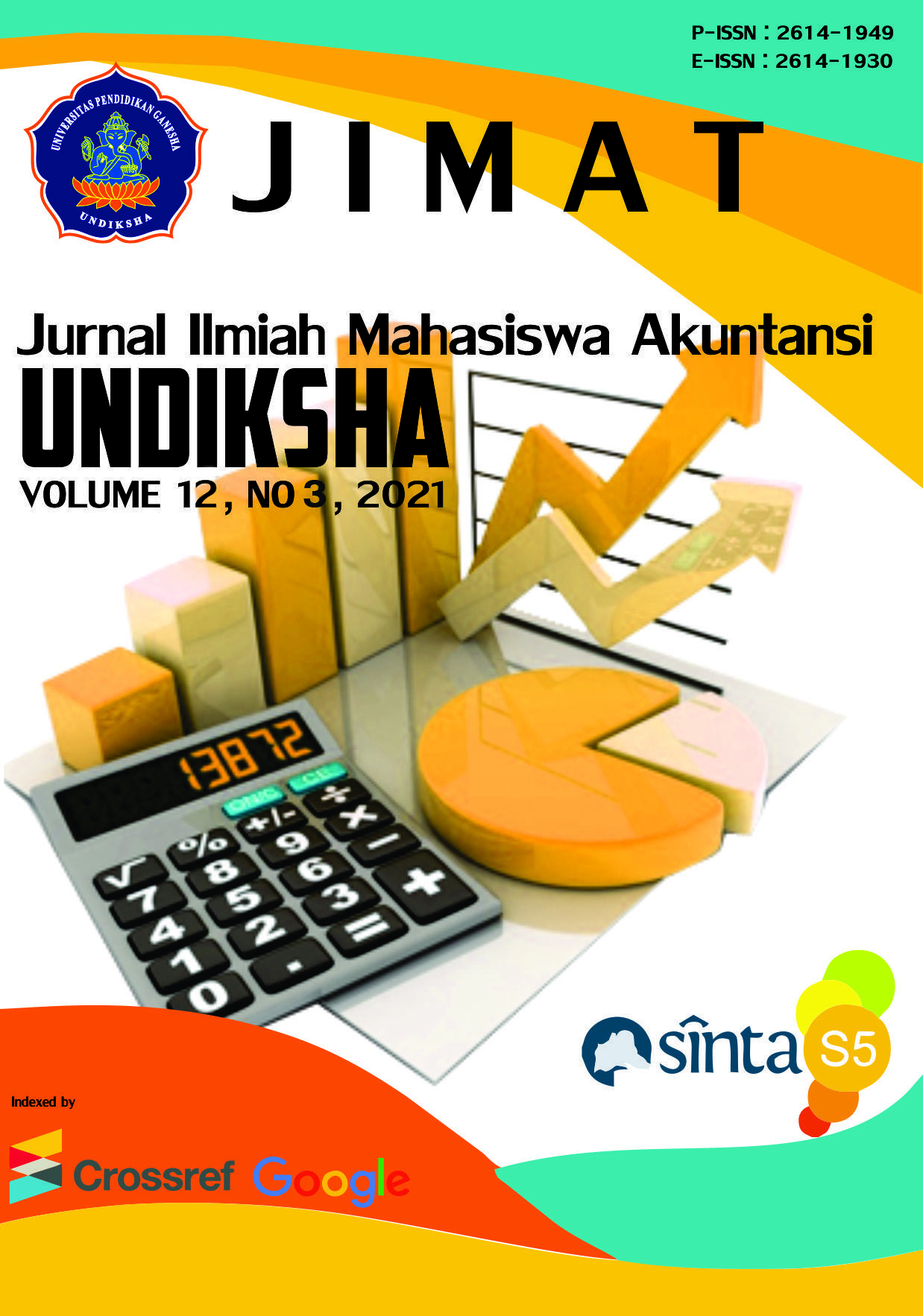Mengungkap Kebijakan Perpajakan Dalam Pandemi Covid-19 Terhadap Wajib Pajak (Studi Kasus di KPP Pratama Singaraja)
DOI:
https://doi.org/10.23887/jimat.v12i3.35342Keywords:
Tax Relaxation, Taxpayers, Covid-19Abstract
This study aims to determine the responses of taxpayers regarding tax policies in the conditions of the Covid-19 pandemic, the effectiveness and efficiency of implementing tax policies, and the impact that is given by the implementation of tax policies in the conditions of the Covid-19 pandemic. This research was conducted using a qualitative descriptive method, where the researcher will make direct observations in the field and collect data that will be analyzed based on the observations and knowledge of the researcher. This research was conducted on individual taxpayers, corporate taxpayers and UMKM taxpayers who are registered at KPP Pratama Singaraja. Sources of data in this study consist of primary data and secondary data. Methods of data collection in this study using the method of observation, interviews, and documentation. This study used data analysis consisting of data reduction, data presentation, and data analysis and conclusion drawing.
The results of the study state that the tax relaxation policy received a positive response from taxpayers by utilizing the relaxation because many taxpayers experienced a decrease in income, so they were unable to pay taxes. The implementation of the tax relaxation policy can be said to have been effective and efficient because according to the taxpayer the policy is very helpful in reducing the burden on the taxpayer. This tax relaxation policy certainly has an impact on the country's economy where when taxpayers take advantage of incentives it will be able to increase people's purchasing power which can indirectly help maintain the stability of the country's economy.
References
Adiyanta, Susila. 2020. Fleksibilitas Pajak sebagai Instrumen Kebijaksanaan Fiskal untuk Mengantisipasi Krisis Ekonomi sebagai Akibat Dampak Pandemi Covid-19. Skripsi. Fakultas Hukum, Universitas Diponegoro.
Juliani, Henny. 2020. Analisis Yuridis Kebijakan Keuangan Negara dalam Penanganan Pandemi Covid-19 Melalui Peraturan Pemerintah Pengganti Undang-Undang Nomor 1 Tahun 2020. Skripsi. Fakultas Hukum, Universitas Diponegoro.
Kemenkeu. 2020. Menkeu Paparkan Realisasi Penerimaan Perpajakan Hingga Agustus 2020. [Online]. Tersedia pada: https://www.kemenkeu.go.id/publikasi/berita/menkeu-paparkan-realisasi-penerimaan-perpajakan-hingga-agustus-2020/. Diakses pada 20 Februari 2021.
Marlinah, Lili, 2020. Peluang dan Tantangan UMKM Dalam Upaya Memperkuat Perekonomian Nasional Tahun 2020 Ditengah Pandemi Covid 19. Skripsi. Universitas Borobudur.
Padyanoor, A. 2021. “Kebijakan Pajak Indonesia Menanggapi Krisis COVID-19: Manfaat bagi Wajib Pajak”. Jurnal Akuntansi, Vol. 30, No. 9, Hal: 2216-2230.
Rosdiana, Haula dan Irianto, Edi Slamet. 2012. Pengantar Ilmu Pajak: Kebijakan dan Implementasi di Indonesia. Jakarta: Rajawali Press.


